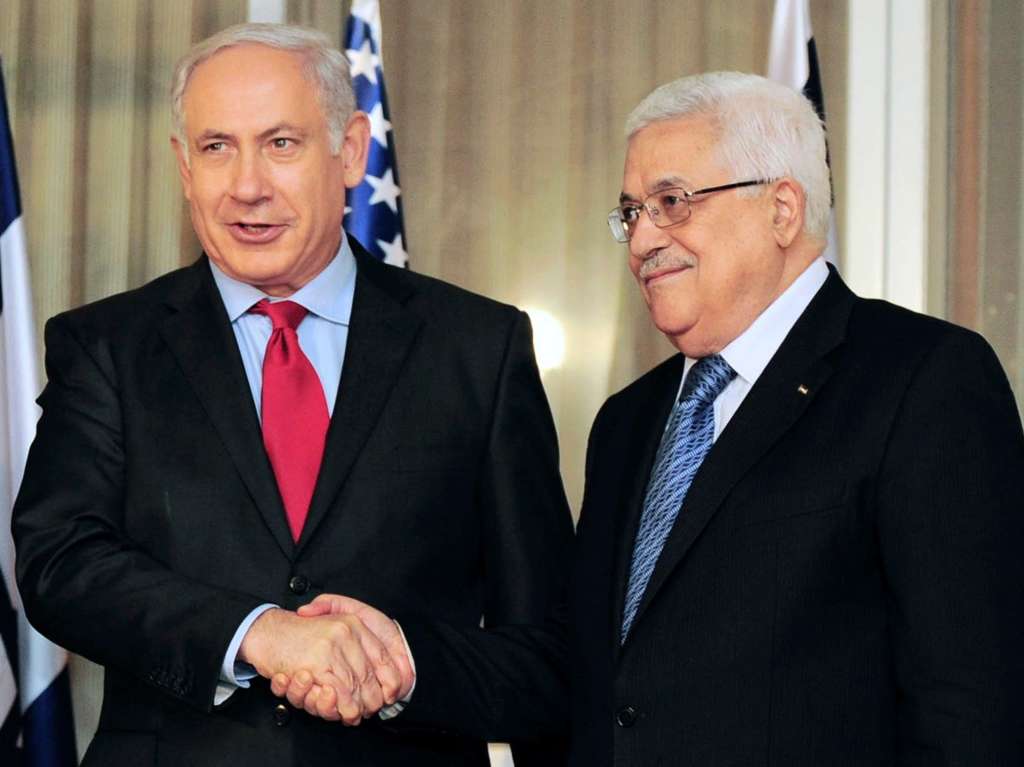France’s president on Friday said that major powers needed to work hand in hand to bring Palestinians and Israelis together as he hosted top diplomats from the West and the Arab world to organize a peace conference by year’s end that would launch long-dormant Middle East peace negotiations.
“The discussion on the conditions for peace between Israelis and Palestinians must take into account the entire region,” President Francois Hollande told delegates at the opening of the conference in Paris.
“The threats and priorities have changed. The changes make it even more urgent to find a solution to the conflict, and this regional upheaval creates new obligations for peace.”
France has grown frustrated over the absence of movement toward a “two-state solution” since the collapse of the last round of talks in April 2014, arguing that letting the status quo prevail is like “waiting for a powder keg to explode.”
“We cannot substitute for the parties. Our initiative aims at giving them guarantees that the peace will be solid, sustainable and under international supervision”, Hollande told the gathering.
U.S. Secretary of State John Kerry and U.N. Secretary-General Ban Ki-moon attended, along with representatives from the Arab League, the European Union and key Arab states.
But Israeli and Palestinian representatives were absent at the gathering of about 30 ministers and organizations although the objective is to get the two sides to negotiate after the U.S. elections.
The meeting, the first international conference on the issue since Annapolis in the United States in 2007, will not touch on any of the chronic core differences between the two sides.
Its initial focus is to reaffirm existing international texts and resolutions that are based on achieving a Palestinian State in the West Bank and Gaza Strip co-existing with Israel, an outcome some say is becoming unrealistic.
It will also try to establish working groups comprising various countries that would meet in the coming months and tackle all aspects of the peace process and create economic and security incentives or guarantees for both sides.
However, chances of reviving negotiations appear remote because of lack of common ground.
The Palestinians say Israeli settlement expansion in occupied territory is dimming any prospect for the viable state they seek, with a capital in Arab East Jerusalem.
Israel has demanded tighter security measures from the Palestinians and a crackdown on militants who have attacked Israeli civilians or threaten their safety. It also says Jerusalem is Israel’s indivisible capital.
Israeli Prime Minister Benjamin Netanyahu has rebuffed the French initiative and said a deal can only be reached in direct negotiations. But Palestinian President Mahmoud Abbas has welcomed France’s efforts.
The Palestinians seek to establish a state in the West Bank, Gaza Strip and east Jerusalem, lands Israel captured in 1967. In 2012, the U.N. General Assembly overwhelmingly recognized a state of Palestine in these boundaries, though setting up an actual state would requires a deal with Israel.
Unlike his predecessors, Netanyahu refuses to recognize the pre-1967 lines as a starting point for border talks, with agreed upon land swaps — the internationally backed formula for a peace deal.
